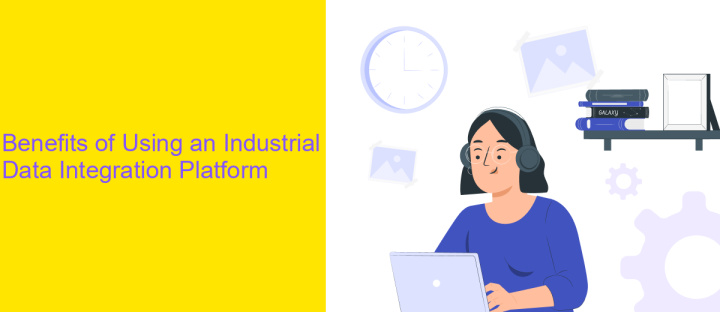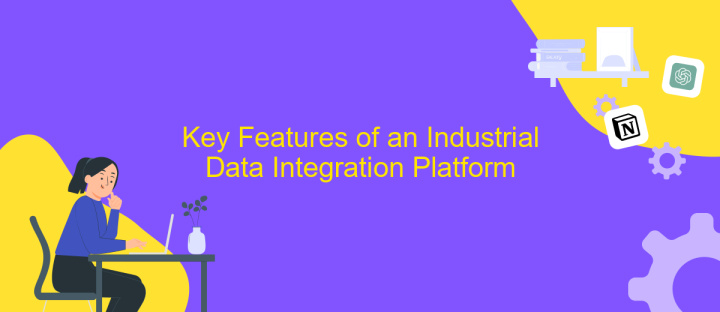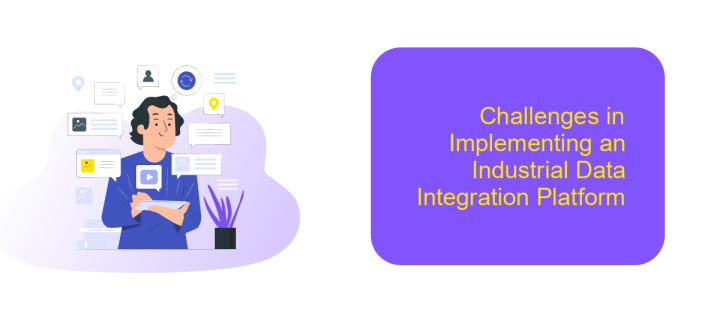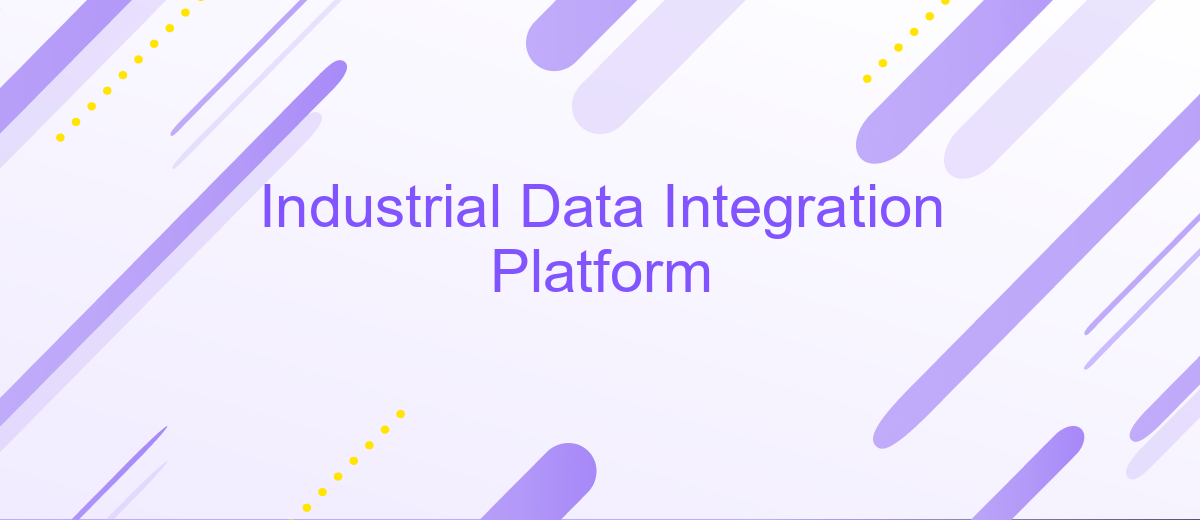Industrial Data Integration Platform
In today's fast-paced industrial landscape, seamless data integration is essential for optimizing operations and driving innovation. An Industrial Data Integration Platform serves as a robust solution, enabling organizations to efficiently collect, process, and analyze vast amounts of data from diverse sources. This platform not only enhances decision-making but also ensures real-time visibility and operational efficiency across the entire enterprise.
What is an Industrial Data Integration Platform?
An Industrial Data Integration Platform is a comprehensive solution designed to streamline the process of collecting, processing, and analyzing data from various industrial sources. It enables seamless connectivity between different systems, devices, and applications within an industrial environment, ensuring that data flows smoothly and is accessible in real-time. This platform plays a crucial role in enhancing operational efficiency, reducing downtime, and facilitating better decision-making.
- Data Connectivity: Integrates data from diverse industrial sources.
- Real-Time Processing: Ensures immediate data availability and analysis.
- Scalability: Supports growing data volumes and expanding operations.
- Security: Protects sensitive industrial data from unauthorized access.
- Interoperability: Works with various industrial protocols and standards.
By leveraging an Industrial Data Integration Platform, organizations can achieve a unified view of their operations, leading to improved productivity and strategic insights. This platform is essential for modern industrial environments that rely on data-driven approaches to optimize performance and maintain a competitive edge.
Benefits of Using an Industrial Data Integration Platform

An Industrial Data Integration Platform streamlines the process of consolidating data from various sources, enhancing operational efficiency and decision-making. By providing a unified view of data, businesses can easily monitor and analyze their operations in real time, leading to improved productivity and reduced downtime. Moreover, it enables seamless communication between different systems, ensuring that data is consistently updated and accurate across all platforms.
Utilizing a service like ApiX-Drive can further simplify the integration process by offering pre-built connectors and automation tools. This not only reduces the time and resources required for setup but also minimizes the risk of errors. ApiX-Drive's user-friendly interface allows even non-technical staff to configure integrations, ensuring that businesses can quickly adapt to changing needs and technologies. Ultimately, an Industrial Data Integration Platform coupled with services like ApiX-Drive can significantly enhance a company's agility and competitiveness in the market.
Key Features of an Industrial Data Integration Platform

An Industrial Data Integration Platform (IDIP) is essential for modern manufacturing and industrial operations, enabling seamless data flow and analysis across various systems. By integrating data from multiple sources, an IDIP enhances decision-making, optimizes processes, and ensures compliance with industry standards.
- Scalability: The platform can handle large volumes of data and scale as the organization grows.
- Real-time Data Processing: Enables immediate data analysis and response, crucial for time-sensitive operations.
- Interoperability: Supports various data formats and protocols, ensuring compatibility with different systems and devices.
- Data Security: Implements robust security measures to protect sensitive information from unauthorized access and breaches.
- Customizability: Offers flexible configuration options to meet specific business needs and workflows.
These key features make an Industrial Data Integration Platform indispensable for industries aiming to leverage data for improved efficiency and innovation. By ensuring seamless integration and real-time processing, IDIPs enable organizations to stay competitive in a rapidly evolving technological landscape.
Challenges in Implementing an Industrial Data Integration Platform

Implementing an Industrial Data Integration Platform presents several challenges that organizations must address to ensure successful deployment. One of the primary obstacles is the complexity of integrating diverse data sources, which often include legacy systems, IoT devices, and modern cloud applications. These disparate systems frequently use different data formats, protocols, and standards, making seamless integration a daunting task.
Another significant challenge is ensuring data quality and consistency across the integrated platform. Inconsistent data can lead to inaccurate analytics and poor decision-making. Organizations must establish robust data governance frameworks and employ advanced data cleansing techniques to maintain high data quality.
- Data security and privacy concerns
- Scalability and performance issues
- High implementation and maintenance costs
- Need for skilled personnel and continuous training
Addressing these challenges requires a strategic approach that includes thorough planning, investing in the right technologies, and fostering a culture of continuous improvement. By doing so, organizations can unlock the full potential of their Industrial Data Integration Platform and drive significant business value.
Case Studies and Best Practices for Implementing an Industrial Data Integration Platform
One notable case study involves a large manufacturing company that successfully implemented an Industrial Data Integration Platform to streamline its operations. By integrating data from various sources such as IoT devices, ERP systems, and production line sensors, the company achieved real-time monitoring and predictive maintenance. This seamless data integration led to a 20% reduction in downtime and a 15% increase in overall efficiency. The platform's ability to unify disparate data sources enabled the company to make data-driven decisions, ultimately improving product quality and customer satisfaction.
Best practices for implementing an Industrial Data Integration Platform include thorough planning and choosing the right tools. For instance, using a service like ApiX-Drive can significantly simplify the integration process. ApiX-Drive allows for easy connection between various applications and systems without the need for extensive coding. This tool can automate data flows and ensure that critical information is synchronized across platforms. Additionally, involving key stakeholders from the beginning and continuously monitoring the integration process can help identify potential issues early and ensure a smooth implementation.
FAQ
What is an Industrial Data Integration Platform?
How does an Industrial Data Integration Platform benefit manufacturing operations?
Can an Industrial Data Integration Platform work with legacy systems?
What are the key features to look for in an Industrial Data Integration Platform?
How can I implement an Industrial Data Integration Platform in my organization?
Apix-Drive is a universal tool that will quickly streamline any workflow, freeing you from routine and possible financial losses. Try ApiX-Drive in action and see how useful it is for you personally. In the meantime, when you are setting up connections between systems, think about where you are investing your free time, because now you will have much more of it.

